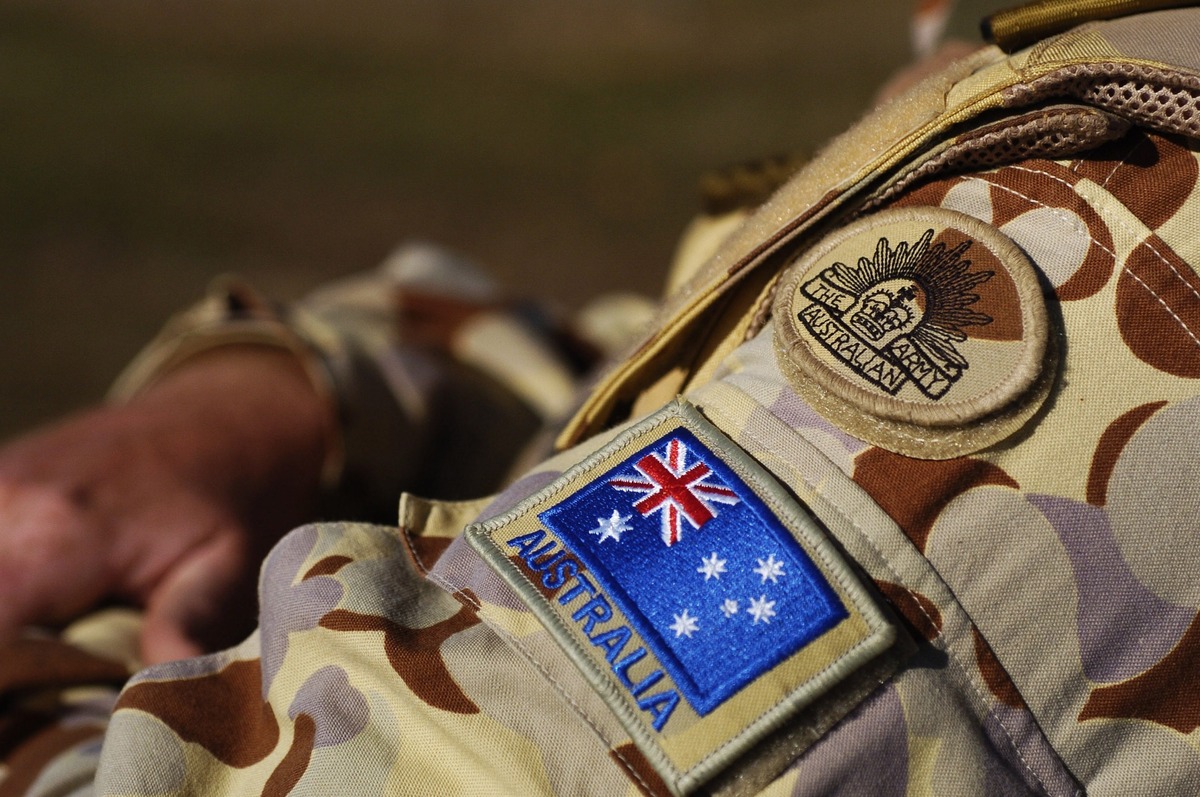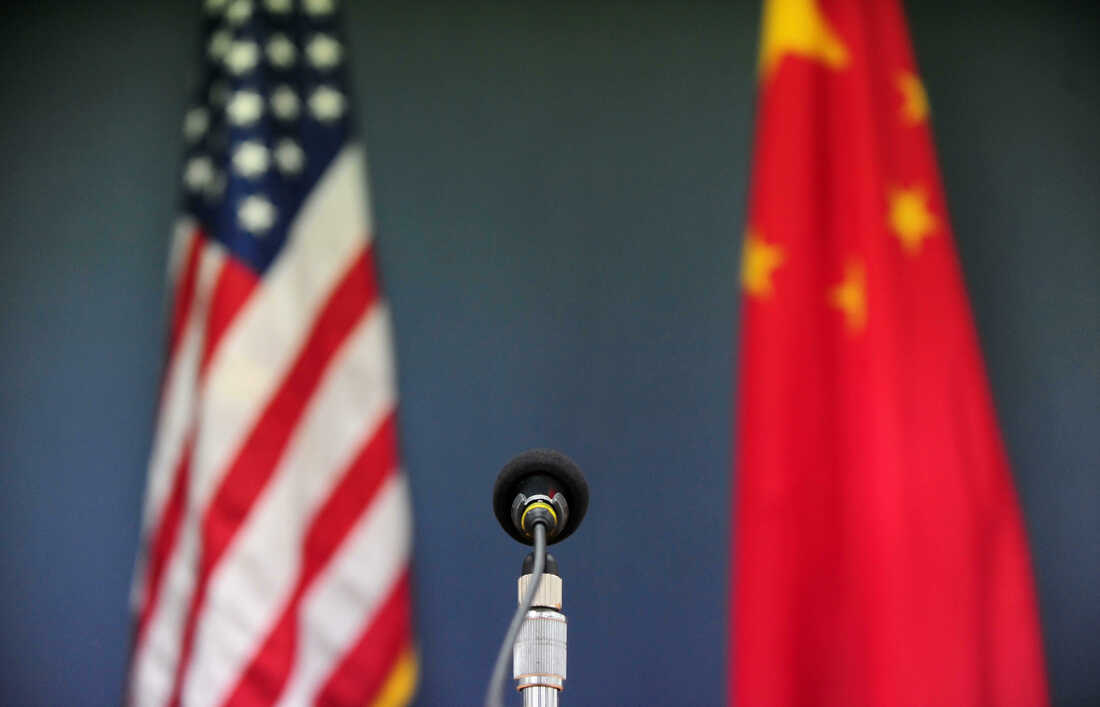
[ad_1]

This month, President Joe Biden introduced a “historic project to strengthen Australian submarine capacity and our own.”
Ian Hitchcock/Getty Images
disguise caption
toggle caption
Ian Hitchcock/Getty Images

This month, President Joe Biden introduced a “historic project to strengthen Australian submarine capacity and our own.”
Ian Hitchcock/Getty Images
This month, Australia struck a cope with the U.S. and the U.Okay. to amass nuclear-powered submarine expertise. It’s a giant second for the nation that, having discovered itself caught between two world powers, has decisively taken sides.
Who are they? The Australians — aka a key pillar within the United States’ technique to counter an more and more highly effective China.
- The nation of about 26 million individuals has lengthy been considered one of America’s closest and most dependable allies, collaborating in quite a few U.S. conflicts — from Vietnam to Iraq and Afghanistan. It is a part of the 5 eyes intelligence sharing pact, and hosts U.S. forces on its territory.
- Australia has had more and more fraught relations with China — on all the things from claims that China has interfered in Australian politics, to calls from Canberra for a global investigation into the origins of COVID-19. China has not taken kindly to those assertions and has tried to punish Australia by slicing off commerce ties. China is Australia’s largest commerce relationship.
- Under the new submarine deal, Australia will purchase U.S. subs within the short-term and construct their very own within the coming a long time. It’s the primary time because the Fifties — and solely the second time ever — that the U.S. has shared this form of tech with one other nation.

(From left) Australian Prime Minister Anthony Albanese, Joe Biden, and British Prime Minister Rishi Sunak maintain a press convention after asserting the submarine deal.
Leon Neal/Getty Images
disguise caption
toggle caption
Leon Neal/Getty Images
What’s the large deal? Apart from how uncommon a transfer like that is for the U.S., it additionally alerts the significance the Biden administration locations on Australia.
- The maneuvering and shoring up of alliances by the U.S. are nothing new, however analysts say what’s evolving is Australia’s function on this dynamic.
- “While America has a ton of allies, and even more partners around the world, we have a much narrower list of those who are both capable and willing to make sure that they step up to provide stability for the region,” Charles Edel, of the U.S. suppose tank Center for Strategic and International Studies, informed NPR’s Steve Inskeep.
- And it comes as China’s President Xi Jinping visited Russia this month, cementing his nation’s ongoing and vital relationship with President Vladimir Putin.
- Meanwhile, the rhetoric between China and the U.S. has been heating up. Earlier this month, China’s new overseas minister, Qin Gang, warned the U.S. was on a path towards “conflict and confrontation.”
Yesterday, we deepened the U.S.-Australia partnership by growing one thing new – collectively.
A historic venture to strengthen Australian submarine capability and our personal.
These investments will assist us promote a free and safe Indo-Pacific for many years to return. pic.twitter.com/KHYzhiWwbX
— President Biden (@POTUS) March 14, 2023
What are individuals saying?
Edel on the deal, and China’s response:
Submarines are solely the tip of the iceberg right here. We’re additionally speaking a few sequence of collaborations in cyber, in synthetic intelligence, in quantum, on unmanned underwater autos — a number of various applied sciences.
I feel from Beijing’s perspective, Australia is a little bit of a puzzling case as a result of it is a smaller state. And as a result of they’ve prospered it would not precisely make sense from a Chinese perspective why the Australians have asserted their very own sovereignty fairly so strongly. And frankly, I feel the explanation why you’ve got seen such anger emanating from Beijing will not be a lot what Australia has finished, however the truth that Australia as a middle-sized democratic energy, has set an alternate instance about how states can get up, defend their very own sovereignty, and never merely buck to the calls for of the Chinese state.
Australian Prime Minister Anthony Albanese, alongside President Joe Biden when the deal was introduced:
Today, what we have actually finished is simply to exhibit a subsequent chapter in our historical past collectively … I feel it is vitally vital, very vital that you’ve got agreed for simply the second time in historical past to share this expertise. And I feel it can make a distinction in advancing safety and stability within the area.
President Joe Biden, when the submarine deal was introduced:
Today, as we stand on the inflection level in historical past, the place the onerous work of asserting deterrence and enhancing stability goes to replicate peace and stability for many years to return, the United States can ask for no higher companions within the Indo-Pacific the place a lot of our shared future will likely be written.
Want to know the world a bit higher? Listen to the Consider This episode on what young Iraqis want 20 years after the war began.

The rhetoric between China and the U.S. has been heating up.
Frederic J. Brown/AFP through Getty Images
disguise caption
toggle caption
Frederic J. Brown/AFP through Getty Images
So, what now?
- Competition and rivalry between the U.S. and China at the moment are entrenched, setting the stage for the years to return. At the identical time, the 2 nations are nonetheless economically entwined, with commerce remaining sturdy.
- Former Australian Prime Minister Kevin Rudd has this week taken up his new posting because the nation’s ambassador to the U.S., and has lately warned in opposition to anticipating China to melt its “ideological cleavage with the West.”
- And Australia is way from the one place the U.S. is concentrated on, with Vice President Kamala Harris departing on Saturday for a week-long trip to Africa to counter Chinese affect there.
Learn extra:
[adinserter block=”4″]
[ad_2]
Source link